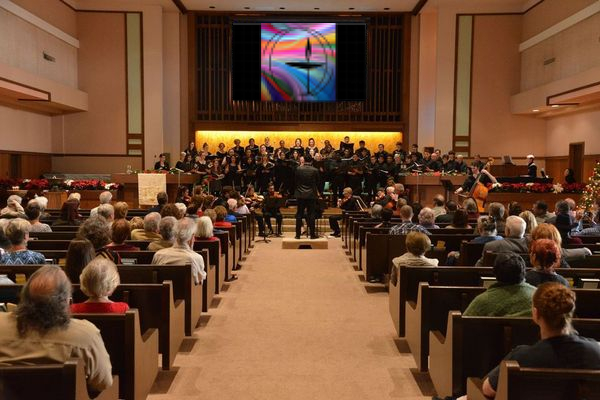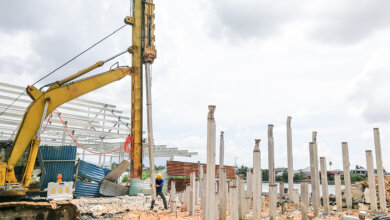Which Values Define Today’s Inclusive Faith Spaces?

In a world marked by increasing variety and transferring religious landscapes, the idea of inclusion has come to be a cornerstone for many present-day religious communities. As humans are trying to find spaces that welcome a vast spectrum of identities, beliefs, and backgrounds, some spiritual traditions are evolving to satisfy this want. One prominent example is the unitarian universalist technique—a liberal religious philosophy that prioritizes inclusivity, personal boom and shared human values over dogma. These values aren’t handiest embraced in nonsecular gatherings however also are deeply embedded in community efforts and talk, mainly within open-minded congregations along with those located in many Houston churches. This article explores the defining values that shape nowadays’s inclusive faith spaces and why they are remembered more than ever.
What Makes a Faith Space Truly Inclusive?
Beyond Doctrine: Embracing Diversity
Traditional nonsecular structures frequently rely on constant creeds and notion structures. In assessment, inclusive religious spaces, consisting of the ones formed through unitarian universalist ideas, consciousness on embracing diversity in both concept and identification. These groups encourage personal theological exploration, permitting contributors to draw from exclusive spiritual traditions—inclusive of Christianity, humanism, Buddhism, and Earth-centered beliefs.
The emphasis is not on uniformity but on harmony through shared moral commitments. This method opens the doors to human beings of different races, genders, sexual orientations, perception structures, and cultural backgrounds, all locating a domestic in one spiritual space.
Welcoming All Identities
Inclusivity in these days’s religious groups matters extra than simply tolerance—it entails lively confirmation. Many Houston church buildings are running toward turning into completely inclusive by way of recognizing and affirming people of all identities. This consists of offering gender-impartial language, honoring LGBTQ+ rights, and making sure of physical and emotional accessibility for humans with disabilities.
Inclusivity also extends to interfaith and non-theistic individuals. People who identify as nonsecular, however no longer nonsecular—or maybe secular humanists—can locate belonging in areas that value life over inflexible doctrine.

Core Values of Inclusive Faith Communities
1. Radical Acceptance
Perhaps the most defining value of an inclusive religion area is a radical reputation. This approach welcomes anyone as they may be—without requiring them to conform to pre-set beliefs or behaviors. In unitarian universalist communities, human beings are encouraged to discover their reality at the same time as being supported in a shared nonsecular journey with others.
This fee is specifically resonant in cities and numerous regions like Houston, where human beings from numerous cultural and religious backgrounds live facet by using side. Inclusive Houston churches frequently mirror this pluralism in their worship, track, and communal practices.
2. Justice and Equity
Justice isn’t only a societal situation—it’s a religious imperative in inclusive communities. Many current religious areas are a robust emphasis on social justice, advocating for the marginalized and confronting systemic inequalities. This includes taking part in racial justice projects, supporting immigrant rights, and advocating for the weather movement.
The unitarian universalist way of life integrates activism at once into its middle values, encouraging participants to live out their faith through compassionate movement. Equity, as a guiding principle, ensures that everybody has a fair hazard to thrive inside and past the church walls.
3. Shared Ethical Principles
Rather than counting on religious authority or scripture alone, inclusive faith communities often unite around shared moral values. These would possibly encompass compassion, integrity, respect, and providing to others. Such values provide an ethical foundation without prescribing a selected theological narrative.
This makes the distance welcoming to each theist and non-theist participants alike and allows for the kind of respectful talk that can bridge differences and nurture information.
4. Open Dialogue and Lifelong Learning
In inclusive communities, questions aren’t only welcome—they may be recommended. Members are invited to engage in considerate conversations about spirituality, ethics, and existence’s huge questions. Programs for youngsters and adults alike have consciousness of interest, essential wondering, and mutual recognition.
Many Houston church buildings with inclusive values provide forums, classes, and small agencies designed to explore different worldviews and guide religious development across someone’s entire existence.
The Role of Unitarian Universalist Beliefs in Inclusion
A Faith Without Walls
The unitarian universalist subculture is constructed on the concept that religious growth is ongoing and deeply private. There isn’t any unmarried textual content or perception that defines membership. Instead, adherents affirm and promote a hard and fast of guiding principles—which include the inherent worth and dignity of anybody and the unfastened and accountable look for fact and which means.
This openness creates a flexible framework where humans from many walks of life can discover spirituality in the community. It offers a version of a faith that’s, in particular, attractive to those disenchanted through inflexible or exclusionary religious stories.
Community Without Judgment
Inclusion also was growing in an area loose from judgment. People aren’t most effectively welcomed but valued for his or her precise views and reviews. Whether a person is a longtime spiritual seeker or simply starting to ask deeper questions, unitarian universalist communities provide a nonjudgmental domestic for discovery and connection.
How Houston Churches Are Reflecting These Values
Multicultural Engagement
Houston is one of the maximum varied cities in the United States, and its faith communities are evolving to mirror that variety. Inclusive Houston churches are embracing multiculturalism by way of incorporating various voices, tunes, and languages into their services. These efforts affirm the particular cultural contributions of their contributors and increase the community’s knowledge of worldwide spirituality.
Partnerships and Outreach
Inclusivity extends beyond Sunday offerings. Many of those church buildings actively associate with nearby nonprofits, advocacy businesses, and interfaith coalitions to promote justice, compassion, and mutual know-how throughout the town. Whether through food drives, social justice marches, or educational workshops, they flip values into action.
Conclusion
As society turns into extra interconnected and culturally various, the want for inclusive faith spaces keeps growing. Communities grounded inside the unitarian universalist tradition offer a compelling imagination and prescient of what present-day spiritual life can appear like—open, accepting, and united through shared values instead of slender doctrines. These areas affirm the glory of anyone, sell justice and equity, and foster religious increase through talk and exploration.
Inclusive Houston church buildings are already embracing this version, reflecting the values of the town and creating welcoming areas in which every person can discover belonging. In a global often divided by way of distinction, these communities offer wishes—no longer through uniformity, but via unity in variety. They show us that faith, at its best, brings humans collectively, encourages understanding, and builds a higher international for all.




